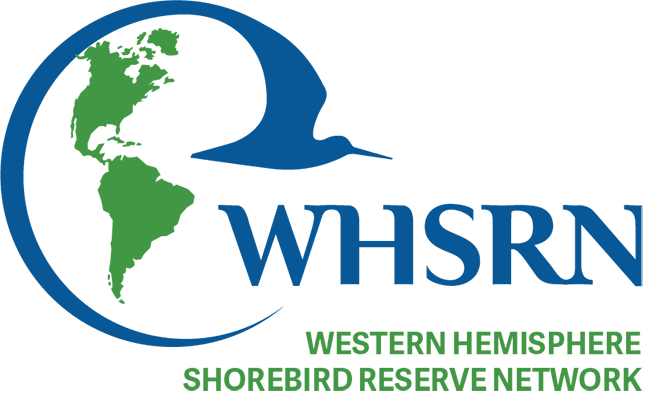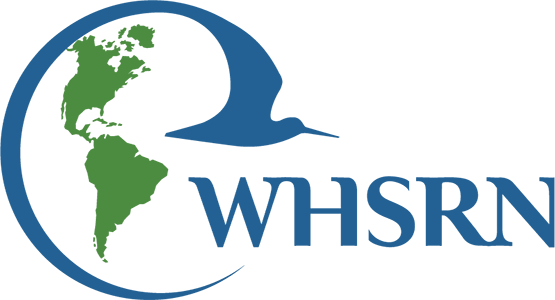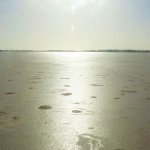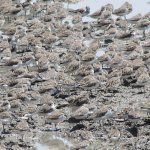Between 9 – 13 September, WHSRN and SAVE Brasil were in Mostardas and Tavares, southern Brazil, conducting a teacher training workshop for 49 teachers from local public schools. Both towns border Lagoa do Peixe National Park, a WHSRN Site of International Importance that has a diversity of habitats including shrub vegetation, marshes, flooded fields, beaches, and its namesake lagoon, Lagoa do Peixe—the park’s main water body. These habitats provide a rich food source for migrating, wintering, and breeding shorebirds including, Buff-breasted Sandpiper (Calidris subruficollis), White-rumped Sandpiper (C. fuscicollis), American Oystercatcher (Haematopus palliatus), and > 10% of the rufa Red Knot population (C. canutus rufa).
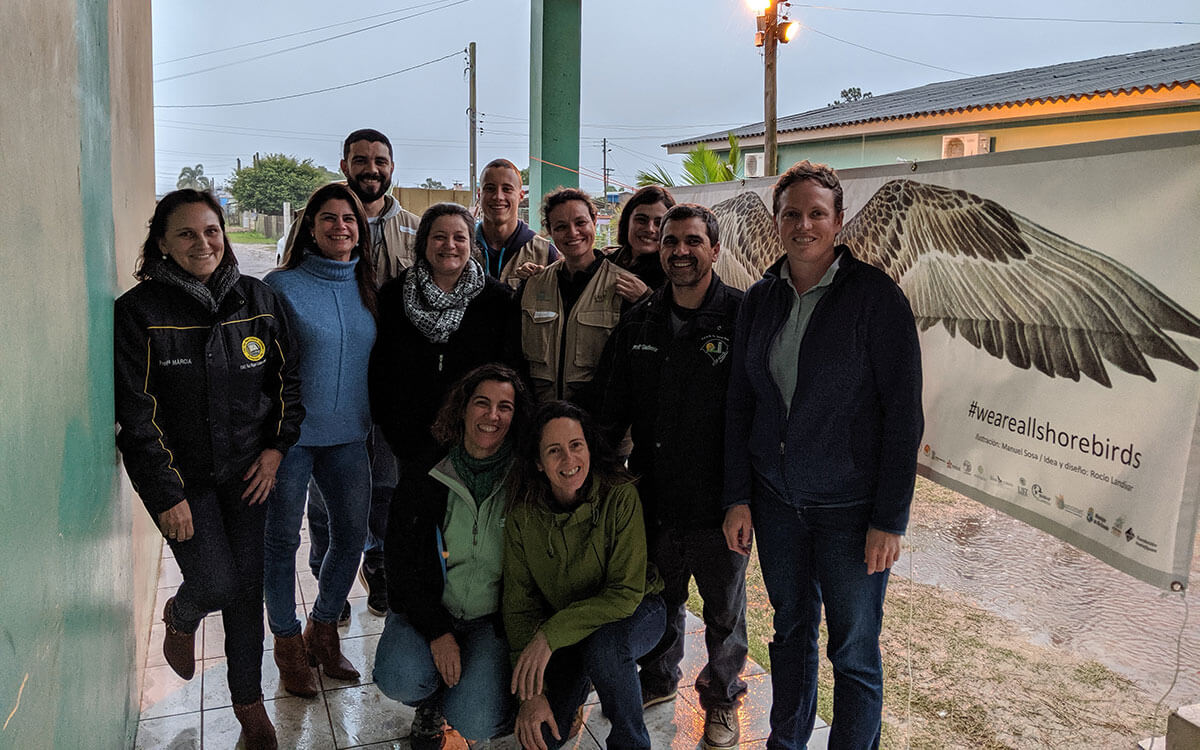
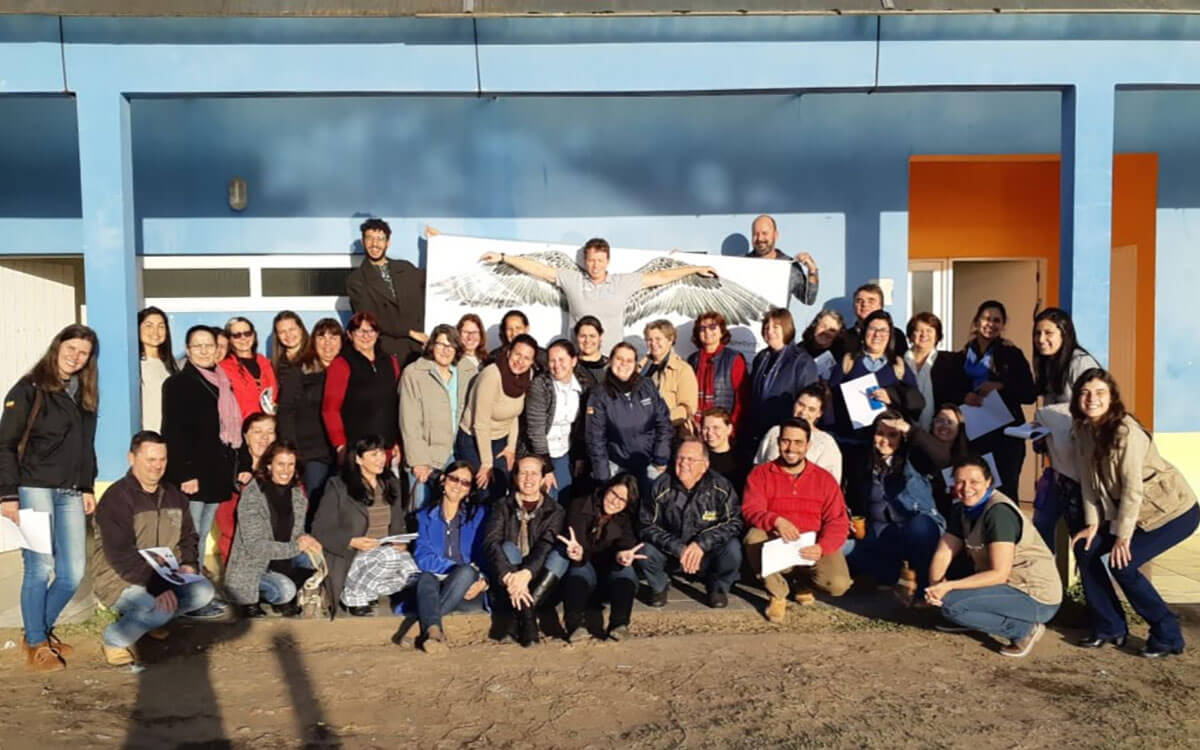
Participants in the teacher training workshops in Mostardas (left) and Tavares (right), near the WHSRN Site Lagoa do Peixe in southern Brazil.
The teacher training workshop is part of a larger project initiated by both organizations and funded by the National Fish and Wildlife Foundation. The goal of the project is to build a local constituency for the Lagoa do Peixe ecosystem because of its importance for shorebirds, other wildlife, and the local communities. The project has two phases: supporting student-led community presentations on the importance of the park and conducting an assessment of the natural benefits or ecosystem services communities receive from Lagoa do Peixe.
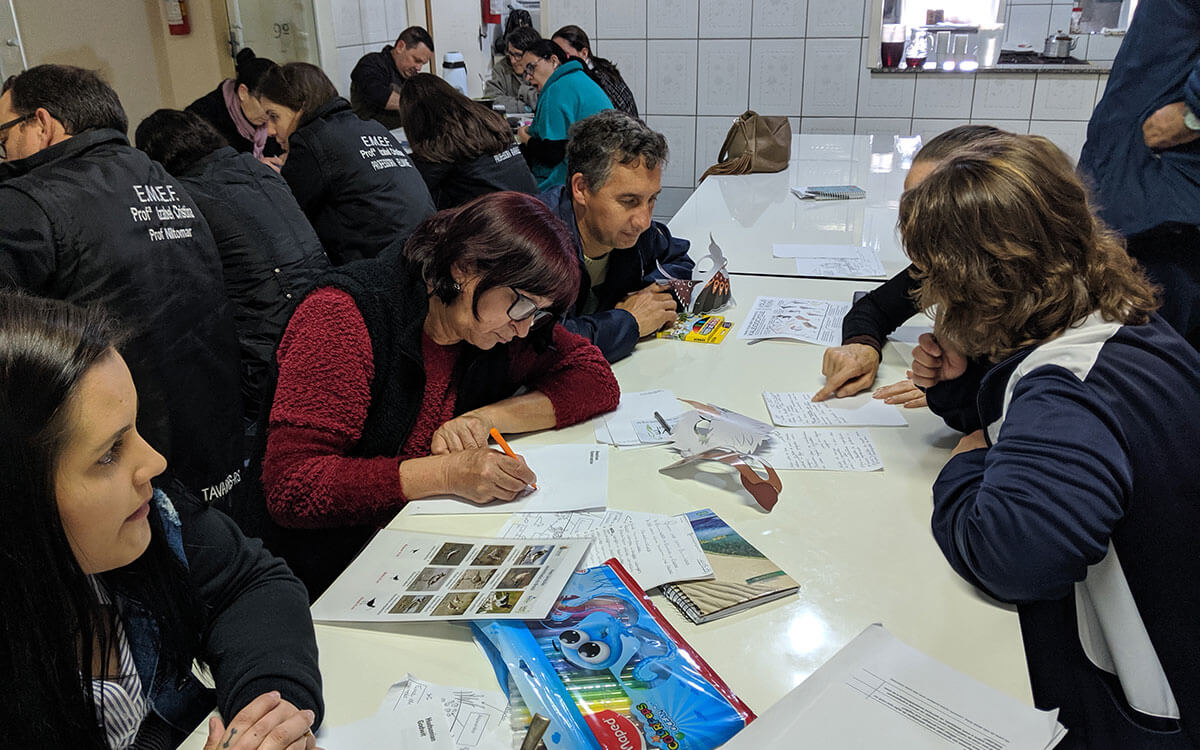
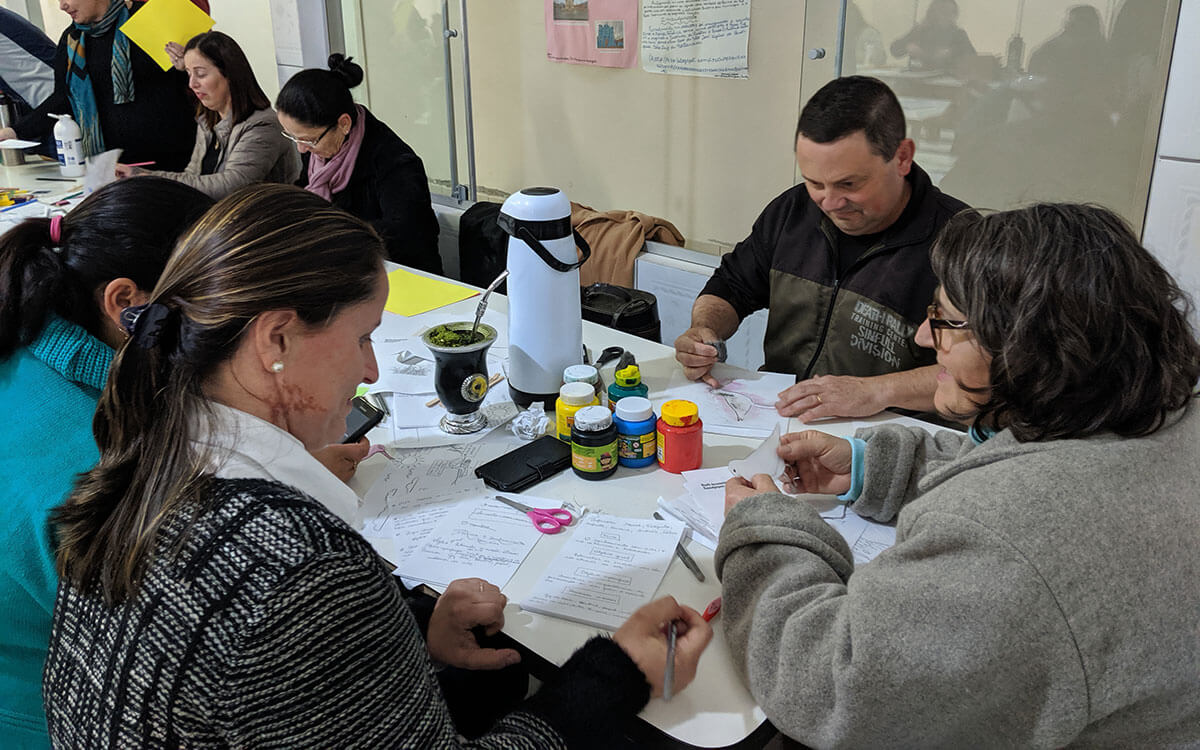
Teachers work on developing lesson plans and creative content for their classrooms. Photos: Laura Chamberlin.
The teacher training workshop focused on providing teachers skills to use art to teach about shorebirds, migration and ecosystem services provided by Lagoa do Peixe. The workshop also included lessons and information on shorebirds and Lagoa do Peixe’s role in shorebird migration. The teachers were very pleased with the workshop. One school principal said “this was the first time we saw such a welcoming training workshop that valued our knowledge through an exchange of experiences. Teachers are so excited; they are already discussing the activities they want to take to the classroom.” The teachers left inspired and ready to tackle the next step in the project, working with their students to develop art-based presentations to share the importance of Lagoa do Peixe National Park with other local stakeholders in the community. Presentations will be student-driven and may include theatre, sculpture, writing, music, or any creative endeavor that will highlight the importance of Lagoa do Peixe.
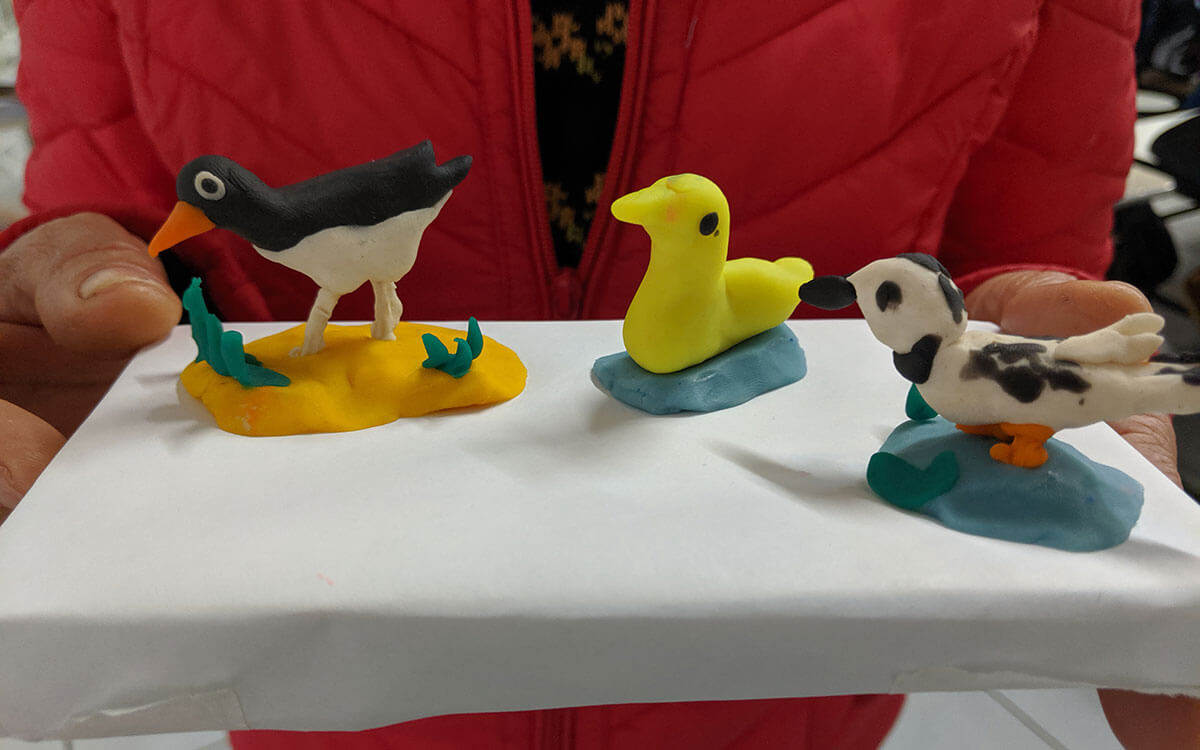
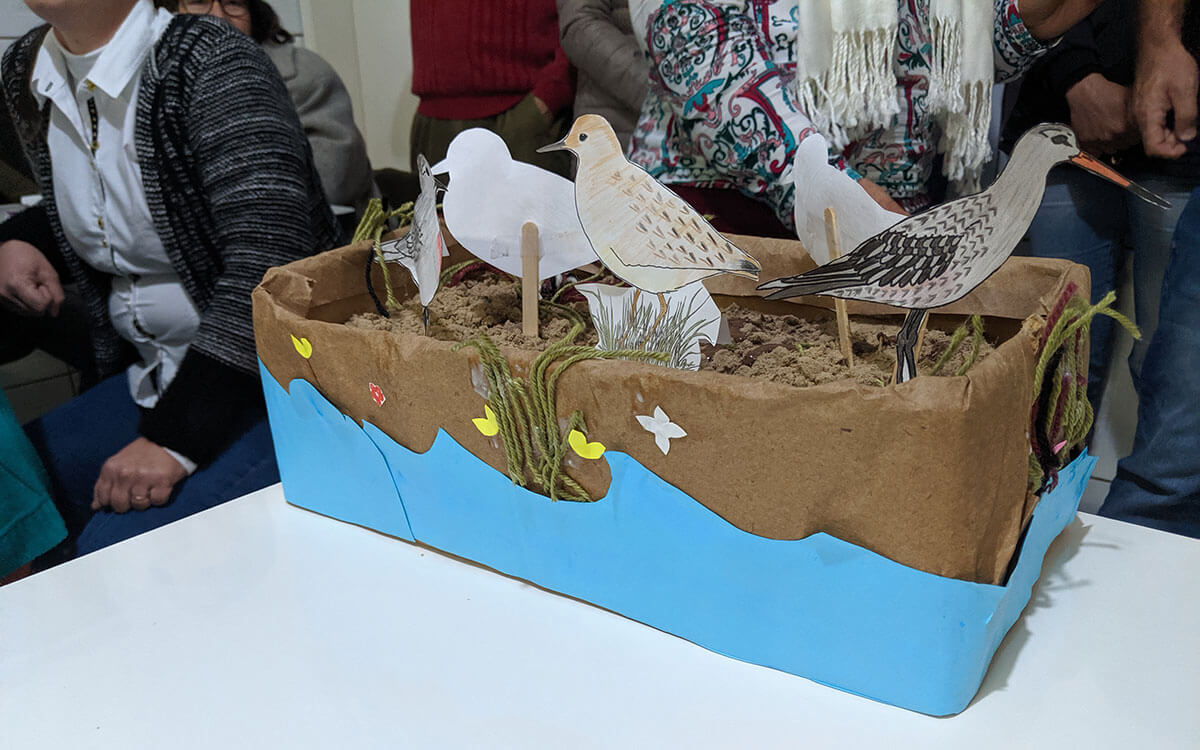
Taking “hands-on” activities seriously, some groups included creating shorebirds from modeling clay and paper in their lesson plans. Photos: Laura Chamberlin.
The assessment of ecosystem services will gather first-hand information on the natural benefits Lagoa do Peixe offers to communities, both local and beyond. Since July 2019 our team has been collecting biological information on the different ecosystems found in the region. The assessment also includes interviews with local community groups to understand how they use and value these local benefits. The results on the ecosystem services assessment are expected to be ready by the end of 2019. The knowledge acquired through this process will provide information to develop local communities’ awareness on the importance of the site for their wellbeing and livelihoods.
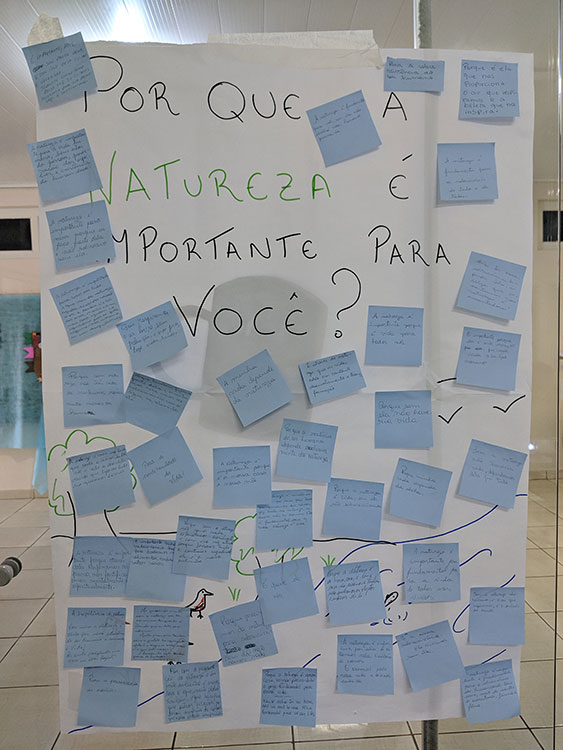
During the workshop, teachers answered the question, “Why is nature important to you?” Photo: Laura Chamberlin.
The results and experiences from the assessment will feed the ecosystem service curriculum being developed for the schools. Teachers will incorporate actual results into classroom activities, giving students the opportunity to learn directly about the ecosystem that supports their community. With support from the teachers and SAVE Brasil, students will lead the effort to share this new information, helping their community understand the importance of Lagoa do Peixe National Park.
Cover Photo: Teachers work on developing lesson plans and creative content for their classrooms. Photo: Laura Chamberlin.


